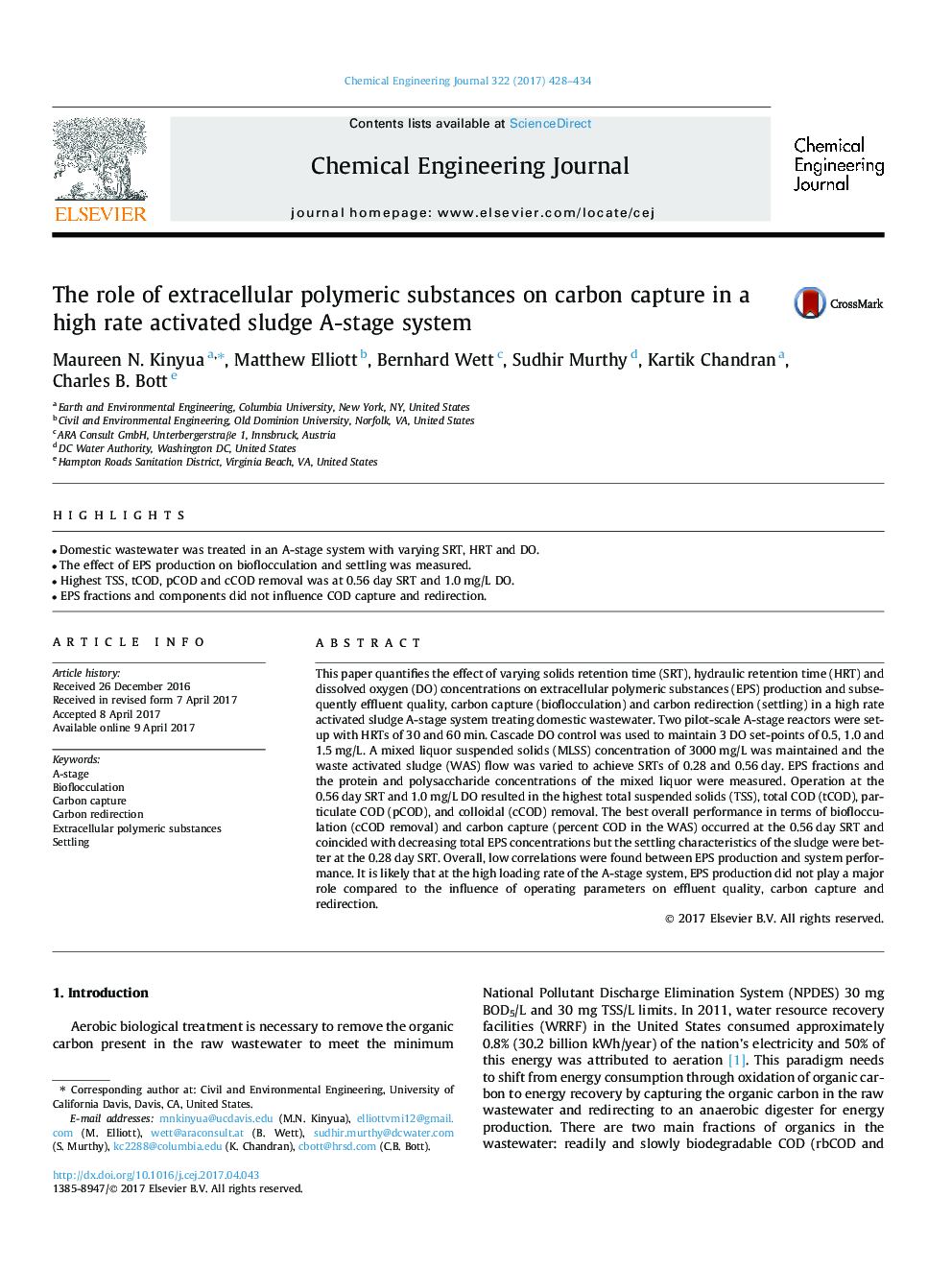| Article ID | Journal | Published Year | Pages | File Type |
|---|---|---|---|---|
| 6465652 | Chemical Engineering Journal | 2017 | 7 Pages |
â¢Domestic wastewater was treated in an A-stage system with varying SRT, HRT and DO.â¢The effect of EPS production on bioflocculation and settling was measured.â¢Highest TSS, tCOD, pCOD and cCOD removal was at 0.56 day SRT and 1.0 mg/L DO.â¢EPS fractions and components did not influence COD capture and redirection.
This paper quantifies the effect of varying solids retention time (SRT), hydraulic retention time (HRT) and dissolved oxygen (DO) concentrations on extracellular polymeric substances (EPS) production and subsequently effluent quality, carbon capture (bioflocculation) and carbon redirection (settling) in a high rate activated sludge A-stage system treating domestic wastewater. Two pilot-scale A-stage reactors were set-up with HRTs of 30 and 60Â min. Cascade DO control was used to maintain 3 DO set-points of 0.5, 1.0 and 1.5Â mg/L. A mixed liquor suspended solids (MLSS) concentration of 3000Â mg/L was maintained and the waste activated sludge (WAS) flow was varied to achieve SRTs of 0.28 and 0.56Â day. EPS fractions and the protein and polysaccharide concentrations of the mixed liquor were measured. Operation at the 0.56Â day SRT and 1.0Â mg/L DO resulted in the highest total suspended solids (TSS), total COD (tCOD), particulate COD (pCOD), and colloidal (cCOD) removal. The best overall performance in terms of bioflocculation (cCOD removal) and carbon capture (percent COD in the WAS) occurred at the 0.56Â day SRT and coincided with decreasing total EPS concentrations but the settling characteristics of the sludge were better at the 0.28Â day SRT. Overall, low correlations were found between EPS production and system performance. It is likely that at the high loading rate of the A-stage system, EPS production did not play a major role compared to the influence of operating parameters on effluent quality, carbon capture and redirection.
